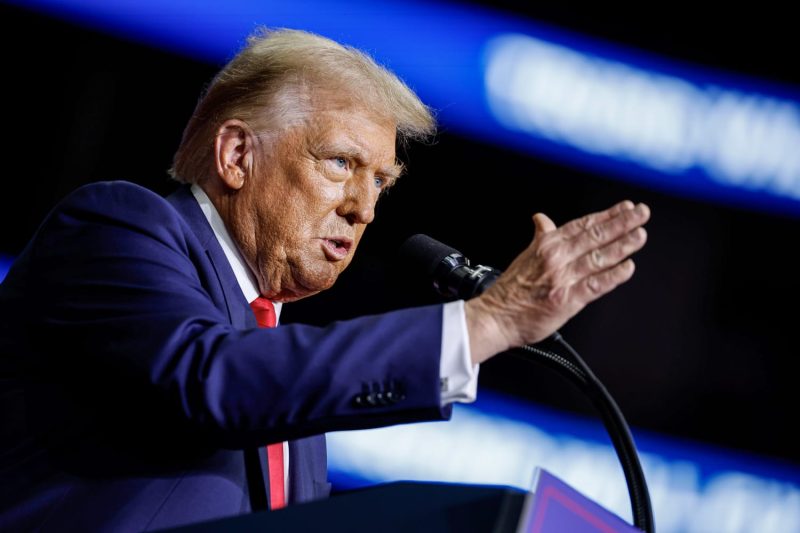In a surprising turn of events, President Donald Trump’s recent tariff threats have sent shockwaves through the U.S. business community, prompting companies to urgently seek out lobbyists and loopholes to protect their interests. This sudden escalation in trade tensions has caught many companies off guard, forcing them to navigate a complex web of regulations and uncertainties as they scramble to respond to the potential economic impact.
The threat of increased tariffs by the Trump administration has created a sense of urgency among U.S. businesses, particularly those with significant overseas operations or supply chains. Companies that rely on imported raw materials or components are particularly vulnerable to the tariffs, as higher import costs could eat into their profit margins and disrupt their operations.
In response to this threat, many companies are turning to lobbyists and industry associations to help them navigate the complex landscape of trade policy and ensure that their concerns are heard at the highest levels of government. Lobbyists are tasked with advocating for their clients’ interests and seeking exemptions or relief from the tariffs through various channels, including direct negotiations with government officials and strategic communications campaigns.
At the same time, companies are also exploring potential loopholes and workarounds to mitigate the impact of the tariffs on their businesses. Some companies are considering shifting production to countries not affected by the tariffs, while others are looking for alternative suppliers or sourcing strategies to minimize their exposure to the higher costs.
The uncertainty surrounding the outcome of the trade negotiations has further exacerbated the situation for U.S. companies, leading to increased volatility in the stock market and casting a shadow of doubt over the future of international trade. As companies brace for potential disruptions to their supply chains and operations, they are also facing pressure to adapt quickly to the changing trade environment and find creative solutions to protect their bottom line.
In conclusion, President Trump’s tariff threats have created a sense of urgency among U.S. companies, prompting them to seek out lobbyists and loopholes to navigate the complex and uncertain trade landscape. As businesses grapple with the potential economic impact of the tariffs, they are turning to advocacy and strategic planning to protect their interests and ensure their long-term viability in an increasingly turbulent global economy.
